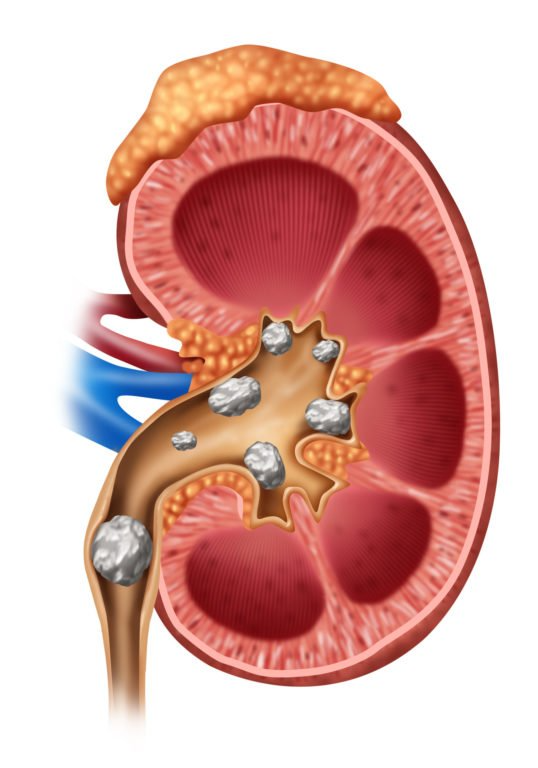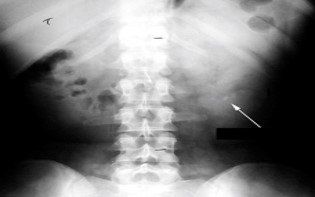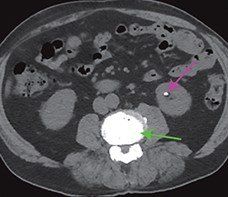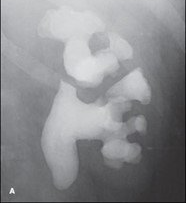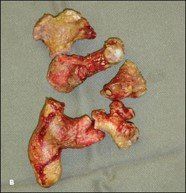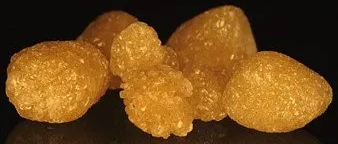Kidney Stones
What are Urinary Stones?
Urinary or kidney stones are formed from the minerals and salts in the urine, which clump together when the urine becomes highly concentrated. The term "kidney stones" is often used because the kidneys are the most common site for stone formation.
Usually, these stones are small and pass through the urinary tract without causing problems.
As the kidneys filter the blood impurities, minerals and acid salts can accumulate and harden over time. These solid crystalline deposits are kidney stones and can form in one or both kidneys. The stones can travel down the urinary tract and block urine flow, causing pain and bleeding.
Who is Affected by Kidney Stones?
While anyone can develop kidney stones, certain groups of people are more at risk than others. These include
- Men
- People who don't drink enough water
- People with a family history of kidney stones
- People who have had kidney stones before
- People who eat a diet high in oxalates
- People who eat a diet high in purines
- People with certain medical conditions
- People taking certain medications.
Even if you are at higher risk of developing kidney stones, you can reduce your risk by making lifestyle changes such as drinking more water, eating a healthy diet, and maintaining a healthy weight.
What are the Causes of Kidney Stones?
The formation of kidney stones is a complex process that several different factors can cause. Some of the most common causes of the stone disease include
- Dehydration: Not drinking enough water can cause the urine to become concentrated, forming crystals and stones.
- Diet: A diet high in oxalates (found in certain foods such as spinach, rhubarb, beets, nuts, chocolate, and tea) can increase the risk of calcium oxalate stones. A diet high in purines (found in red meat, organ meats, and seafood) can increase the risk of uric acid stones.
- Metabolic disorders: Certain metabolic disorders such as hyperparathyroidism, sarcoidosis, inflammatory bowel disease, renal tubular acidosis, and medullary sponge kidney can increase the risk of kidney stones.
- Medical conditions: Certain medical conditions such as gout, urinary tract infections, and inherited disorders can increase the risk of kidney stones.
- Medications: Certain medications such as diuretics, anti-seizure medications, and certain antibiotics can increase the risk of kidney stones.
What are the Symptoms of Kidney Stones?
Symptoms of kidney stones can vary depending on the size and location of the stones. Some of the most common symptoms include
- Severe pain: The most common symptom of kidney stones is severe pain, usually felt in the back, side, lower abdomen, or groyne. The pain can be sharp, cramping or dull. It may come and go in waves.
- Nausea and vomiting: Some people with kidney stones may experience nausea and vomiting.
- Blood in the urine (haematuria): Stones can cause blood in the urine due to irritation or damage to the urinary tract.
- Frequent urination: A stone can cause pressure on the urinary tract and cause an urgency to urinate more frequently.
- Burning sensation during urination: Stones can irritate the urinary tract and cause a burning sensation during urination.
- Cloudy, dark, bloody, or strong-smelling urine: Stones can cause changes in appearance, smell, or colour.
- Difficulty urinating: If the stone is blocking the urine flow, it can cause difficulty urinating or a feeling of incomplete emptying.
- Fever and chills: If a stone causes a urinary tract infection, it can cause fever and chills.
Not everyone with kidney stones will experience symptoms, and some small stones may pass out of the body without causing any symptoms. However, even small stones can cause damage to the urinary tract, so it's essential to seek medical attention if you suspect you have kidney stones.
What are the Different Types of Kidney Stones?
Kidney stones come in many different types, shapes and colours. Based on the composition, the stones are classified into four main types:
Calcium Stones
These are the most common type of stones (>75%) and are made up of calcium oxalate or calcium phosphate. Calcium stones can form in the kidneys and can also be found in the ureters and bladder. These stones can typically be seen on a plain x-ray.
Uric Acid Stones
These stones are formed when the urine is too acidic and can be found in the kidneys and urinary bladder. These stones are more common in people who eat a diet high in purines, which are found in red meat, organ meats, and seafood.
Infection or Struvite Stones
These stones are made of magnesium, ammonium, and phosphate and are most commonly found in women with urinary tract infections. These stones can grow quickly and can cause damage to the kidneys.
They are typically seen on a plain x-ray forming a cast of the kidney's drainage system.
Cystine Stones
These stones are rare and occur in people with a genetic disorder that causes too much of the amino acid cystine to be excreted in the urine. These stones are only faintly visible on x-ray.
How are Kidney Stones Diagnosed?
If Dr Wang suspects you are suffering from kidney stones, he will evaluate you appropriately. He may order a few investigations, including
- Blood investigations, to assess the levels of calcium, phosphate, uric acid, electrolytes, and other components associated with stone formation.
- Urine or Urinalysis to examine the urine pH and urine culture – the test detects the presence of blood in the urine (haematuria) and infection that can lead to stones and any kidney damage, as well as basic metabolic screening
- Imaging tests (X-ray, CT scans) to diagnose the Kidney Stones.
You may also be asked to urinate through a sieve to collect and test the kidney stones that pass in the lab. The results will help your doctor to determine the cause and formulate an appropriate plan for treatment.
Sometimes, the diagnosis is made unexpectedly when the patient is being investigated for an unrelated medical condition. Dr Wang will advise you if your stone needs to be treated.
What are the Treatment Options for Kidney Stones?
The options available for treating kidney stones depend on the type of stone present, the severity of the symptoms, and the location of the stone.
Treatment options include
- Observation: Small stones that are likely to pass on their own can be monitored with observation and pain management.
- Medication: Certain types of stones can be dissolved with medication such as Ural; alpha-blockers, which can relax the muscles of the ureter and help the stone pass more quickly.
- Extracorporeal Shock Wave Lithotripsy (ESWL): ESWL uses high-energy shock waves to break the stone into small pieces that can be passed more easily.
- Ureterorenoscopy (URS): URS is a procedure that uses a small scope to remove the stone directly from the kidney or ureter, usually used in conjunction with laser.
- Percutaneous Nephrolithotomy (PCNL): PCNL is a procedure that uses a small incision in the back to access the kidney and remove large stones directly.
- Prevention
- Surgery: In some cases, surgery may be necessary to remove a stone that is too large to pass or is causing complications.
Kidney Stone Surgery
Surgery may be needed to unblock the kidney and remove a stone from the ureter or kidney if:
- The stone fails to pass
- The stone is too big
- The pain is severe
- The stone is affecting your kidney function
- The stone is causing infection
- The stone is affecting your employment
- There is a need for immediate treatment (i.e. kidney failure, infection)
- You are considering getting pregnant
In case of complex, recurrent stones (in particular cystine stones which often relapse), a lifelong commitment is required with a trusted team of medical specialists, supervised by a urologist and nephrologist.
Long-term management involves close surveillance, ongoing educational support, urinary alkalinisation, oral fluids, and in many instances, lifelong medications.
Dr Wang can discuss the treatment options and help you find the most suitable procedure.
Types of Kidney Stone Surgery
- Laser Stone Surgery using Flexible Pyeloscopy
- Percutaneous Nephrolithotomy (PCNL)
- Ureteroscopy, and
- Extracorporeal Shock Wave Lithotripsy
Medications Used to Treat Kidney Stones
There are medications to help pass a kidney stone causing a blockage, but these are considered only on a case-by-case basis. It remains controversial regarding its effectiveness.
In certain situations, a tablet called tamsulosin (Flomaxtra) may be beneficial in helping relax the ureter to assist the stone in passing. It works best for stones that are lower down in the ureter. Pain-relieving medications may also be required to help during this time.
How Can I Prevent Stones from Recurring?
The type of stone you have will determine your stone management. There is no “one-size-fits-all” prescription for preventing kidney stones.
General measures in kidney stone prevention revolve around being well motivated not to have another stone, maintaining a healthy lifestyle and normal weight range, keeping up fluid intake, reducing animal protein intake and decreasing salt in the diet.
General recommendations for stone prevention include:
- Increasing fluid intake to dilute the urine, so stones do not begin to form. You should drink at least 10 cups (250mL) or 2.5 litres of fluid daily. Ideal fluid choice is water. The aim is to consume fluids low in sugar and calories to produce pale yellow urine.
- Adopting a healthy lifestyle with regular physical activity
- Maintaining an average calcium intake (having two servings of dairy each day) is vital to help bind and remove stone-forming crystals in the gut before they get into the kidney
- It should be noted that calcium stones are usually not due to an excessive intake of dietary calcium so no calcium restriction
- Reducing excessive protein intake. As a general recommendation, your daily protein intake should be no more than 350 grams of beef, poultry, fish or pork per day. As a general rule, meat that fits the palm equals 100 grams.
- Maintaining a healthy body weight for your build. A body mass index range of 19 to 25 is considered healthy.
- Decrease salt (sodium) intake as the more salt your kidneys filter, the more calcium is formed in the urine. Excess calcium in the urine can lead to the formation of stones as they bind with other minerals. You should consume less than 2000 mg/ day of sodium. This is equivalent to one teaspoon of salt per day.
In summary, “Eat from each food group daily, animal proteins in moderation; plenty of fruit and vegetables; drink plenty of fluids, and have a diet low in salt”
What are the Risks if Kidney Stones are Left Untreated?
If kidney stones are left untreated, they can cause a range of complications. Some of the most common complications of untreated kidney stones include
- Obstruction
- Urinary tract infections
- Kidney damage
- Recurrent stone formation
- Haematuria
- Pain
It's essential to seek medical attention if you have symptoms of kidney stones, as early diagnosis and treatment can help prevent complications and recurrences. If you experience severe pain or other symptoms such as blood in the urine, fever, or difficulty urinating, seek medical attention immediately.
